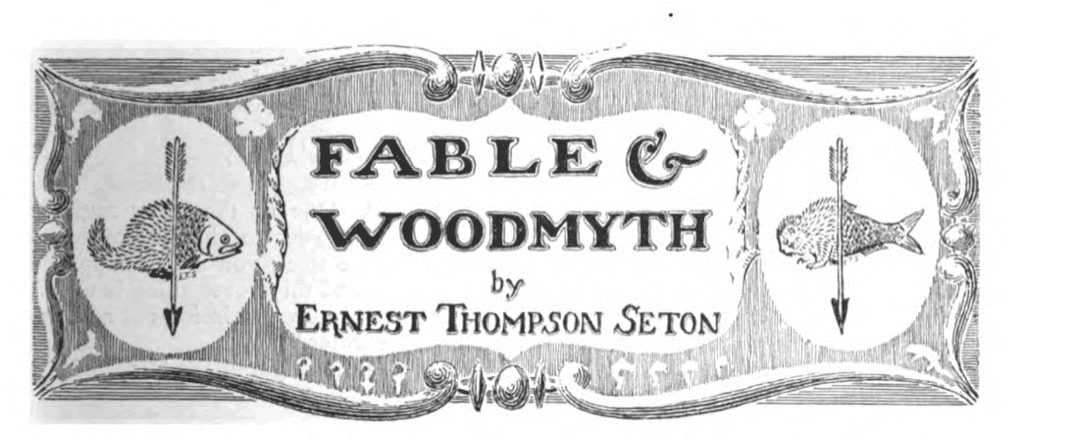Seton Illustration from The Century Magazine
The revered, elderly, lyrical naturalist John Burroughs attacked Seton as a “Nature Faker” in an article entitled “Real and Sham Natural History,” appearing in the March 1903 issue of Atlantic Monthly. This hurt on several levels. First of all, Seton was a great admired the older man, having become an avid Burroughs reader decades before. Secondly, Seton’s grasp of wildlife biology was greater than that of Burroughs, especially in regard to animal behavior. Finally, there was no graceful—or forceful—way to counterattack, so beloved was the old bearded guy. Also true—Burroughs’ attack could not go unanswered. Uncharacteristically for the thin-skinned Seton, rather than reacting with public anger, he wrote a whimsical story about the two of them, adding it to his series in The Century Magazine, “Woodmyth and Fable,” which was also a book of the same name. The “Little Mucky” story did not appear in the book version. Granting equal time, I have included Burroughs’ article in the Guest Essay section of this website.
The Fate of Little Mucky
ONCE there was a race with peculiar laws of growth. The people grew big in proportion to what they had done.
In a corner of their land was One who worked away very quietly for half his life-time, thinking not about growth, but about doing certain things that were next his heart.
It so happened that many of his long tasks were finished about the same time, and so he seemed to grow very fast and became much bigger than the people near him. Most of them rejoiced at his success, but there was one who had long schemed and aimed at “being big” without work, and so by the other natural law had kept on shriveling, while this one thought was in his small heart: “I cannot get anybody to notice me now, but if I can throw a handful of mud at this Tall One that I hate, I shall at least have all eyes turned my way for a time.” So he prepared a quantity of vileness, and by climbing a hill called Big-Periodic, he reached high enough to throw the muck, and the tall Worker was plentifully bespattered. Every one turned in surprise, and saw the spindly Dwarf grinning with delight at his success, happy to be for a moment the center of observation.
At first some of them laughed with the Dwarf, and every one wondered what the Worker would do. He would be quite justified in using his power. But he went on quietly with his work; the filth was easily brushed away, because it had no affinities there. The Dwarf grew smaller; people sniffed at him, after the first ripple of surprise and amusement. Furious now, he ran after the Worker to repeat his attack, since it seemed quite safe; but, not realizing that he had shrunk to a mere Pygmy, he fell into the hole where he had mixed the muck and was smothered.
Here endeth the tale of Little Mucky the Critic.
MORAL: Notoriety is a poisonous substitute for fame.

